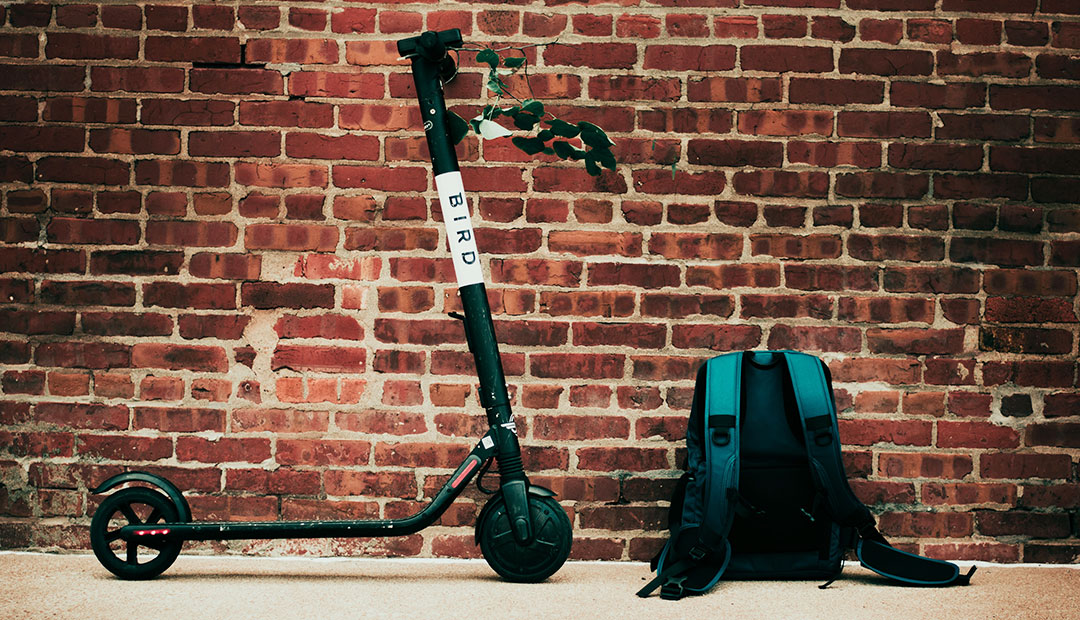What the Legalisation of E-Scooters Could Mean in the UK
Despite the use of electric scooters currently being illegal in the UK (unless on private property), the sale of e-scooters is increasing exponentially. Colchester based retailer; Micro Scooters experienced a 50% increase in sales between 2018-2019 and they are becoming a commuter staple across London. The UK is 1 of only 3 countries in Europe that has banned their use on public roads and pavements. The government, however, may make a U-turn as early as summer 2020 to legalise the use of these electric ‘vehicles’.
New Product Categories
A change in law would lead to a whole new category of product, not just around the scooters themselves as this market is already well established, but around positive implementation of the law across the UK.
The popularity of scooters will truly take off if the law does change, not only in sales but also in easy-to-access hiring companies who specialise in rental via an app.
Compact, fast, affordable and rechargeable, there is definite appeal in the e-scooter as an alternative to walking or cycling. However, legalisation may lead to potentially substantial problems if a role out plan is not put in place.

Speed
Whilst speed limits would likely be laid out in the law itself, electric scooters available online can reach speeds of up to 30mph for under £200. Much smaller than a car, it is easier to slip past both road traffic and pedestrians, causing an increase in the number of accidents in urban centres. The repercussions of this would be complicated as the subject of insurance and penalties would need to be somehow implemented.
Paris combated this problem by only allowing companies with certain licences to operate in the country, with the result that there are only 3 main players in the electric scooter space. The control through licensing increases the quality and reliability of the scooters themselves, whilst ensuring a consistent speed restriction for greater safety.
Restrictions on where you can ride a scooter, for example only on roads would reduce the injuries to pedestrians with harsh penalties in place for pavement offenders.
Enforcement
This is a big one, because realistically how do you enforce the law to encourage safe use? In Copenhagen, it is common to see couples or parents and their kids sharing a scooter, likewise with the transportation of luggage. When there is a crash, how is that dealt with? Will insurance be mandatory? Will the change in law result in a change for cyclists? These are all questions that will need to be addressed ahead of time to ensure that the change in law will not result in chaotic adoption.
‘Parking’ Congestion
The second the law changes, hire firms will descend on the major UK cities. Companies like Lime, Redy and Bird are already the leading competitors in Europe and have established almost overnight success with hiring out electric scooters to commuters and tourists alike. Their business models are targeted at leisurely city exploration and the ‘last mile’ commute, providing swift and easy travel between public transport and the office doorstep at the touch of an app.
This is a big problem across Europe and the US, as hordes of scooters are ‘parked up’ in bike racks, attached to rails, around trees or just left on pavements. The local councils are left relatively powerless to do anything apart from hand out penalties for littering. Whilst overall law accepts the use of ‘powered transporters’, it tends to be up to the local authorities to determine more accurate regulations and penalties which has led to uncertainty as to what is or is not allowed.
There are a great many upsides to lifting the ban on e-scooters including greater movement without the need for a car, cutting pollution levels, increased tourism opportunities and overall convenience; however, implementation will need to be carefully considered to avoid consumer confusion about usage boundaries and to keep both users and pedestrians safe. The UK must learn from other cities who allow e-scooters as it is not as simple as a change in the law. It will take time to avoid a difficult and potentially costly transition to allow for a seamless shift into e-scooter acceptance.









